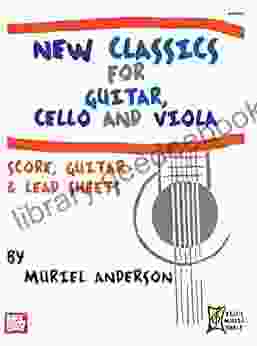Psychogeometry: Exploring the Montessori 16 Geometric Shapes

In the realm of early childhood education, the name Dr. Maria Montessori stands as a beacon of innovation and child-centered learning. One of her most intriguing contributions to the educational landscape is the concept of Psychogeometry, an approach that harnesses the power of geometric shapes to foster cognitive development in young minds.
5 out of 5
| Language | : | English |
| File size | : | 6141 KB |
| Text-to-Speech | : | Enabled |
| Screen Reader | : | Supported |
| Enhanced typesetting | : | Enabled |
| Word Wise | : | Enabled |
| Print length | : | 320 pages |
The Montessori 16: A Spectrum of Shapes
At the heart of Psychogeometry lies a carefully curated set of 16 geometric shapes, each meticulously designed to appeal to specific developmental needs and ignite cognitive sparks. These shapes, known collectively as the Montessori 16, encompass a diverse range of forms, from simple triangles and circles to more complex polygons and solids.
- Triangle
- Square
- Rectangle
- Circle
- Ellipse
- Pentagon
- Hexagon
- Heptagon
- Octagon
- Nonagon
- Decagon
- Cube
- Cuboid
- Sphere
- Cylinder
- Cone
The Significance of the Montessori 16
The Montessori 16 is not merely a collection of shapes; it is a carefully crafted system that caters to the unique developmental trajectories of young children. Each shape introduces a new geometric concept, offering a tangible bridge between abstract mathematical principles and the child's lived experiences.
Through hands-on exploration and manipulation of these shapes, children embark on a journey of discovery, gradually grasping the intricacies of angles, proportions, symmetry, and spatial relationships.
Benefits of Psychogeometry in Early Childhood Education
The incorporation of Psychogeometry into early childhood education unlocks a myriad of benefits for young learners. These benefits extend far beyond the realm of shape recognition and encompass a diverse range of cognitive and developmental domains:
Spatial Reasoning and Problem-Solving
Psychogeometry provides an exceptional platform for developing spatial reasoning skills, a crucial component of higher-order thinking. By manipulating and visualizing the Montessori 16, children learn to mentally rotate, translate, and reason about objects in space. This foundation proves invaluable in later mathematical pursuits and real-world problem-solving scenarios.
Pattern Recognition and Shape Discrimination
The Montessori 16 exposes children to a wide array of patterns and shapes, honing their ability to discern similarities and differences. This heightened pattern recognition and shape discrimination ability serves as a cornerstone for future language, mathematics, and scientific endeavors.
Creativity and Imagination
Far from being a rigid academic exercise, Psychogeometry encourages creativity and imaginative play. Children are empowered to use the shapes as building blocks for imaginative creations, stimulating their spatial visualization and fostering a love for geometry.
Practical Applications in the Classroom
The Montessori 16 is a versatile tool that can be seamlessly integrated into a wide range of classroom activities and learning experiences. Some common applications include:
- Shape matching and sorting: Children use their senses to match and sort the shapes based on various attributes, such as size, color, and form.
- Shape puzzles: Children assemble wooden or cardboard puzzles featuring the Montessori 16 shapes, enhancing their problem-solving skills and reinforcing shape recognition.
- Geometric construction: Using wooden or plastic blocks, children construct geometric figures and explore spatial relationships.
- Nature walks and observations: Children seek out and identify geometric shapes in their natural surroundings, fostering a connection between abstract concepts and the real world.
Psychogeometry, with its carefully curated set of Montessori 16 geometric shapes, stands as a testament to Dr. Maria Montessori's unwavering commitment to child development. By harnessing the power of shape exploration, this approach unlocks a wealth of cognitive, developmental, and creative benefits for young learners.
In classrooms and homes around the world, Psychogeometry continues to inspire generations of children to embrace the wonders of geometry and embark on lifelong journeys of spatial reasoning, problem-solving, and creativity.
5 out of 5
| Language | : | English |
| File size | : | 6141 KB |
| Text-to-Speech | : | Enabled |
| Screen Reader | : | Supported |
| Enhanced typesetting | : | Enabled |
| Word Wise | : | Enabled |
| Print length | : | 320 pages |
Do you want to contribute by writing guest posts on this blog?
Please contact us and send us a resume of previous articles that you have written.
 Book
Book Novel
Novel Page
Page Chapter
Chapter Story
Story Reader
Reader Magazine
Magazine Newspaper
Newspaper Paragraph
Paragraph Shelf
Shelf Bibliography
Bibliography Foreword
Foreword Annotation
Annotation Manuscript
Manuscript Scroll
Scroll Tome
Tome Bestseller
Bestseller Classics
Classics Library card
Library card Biography
Biography Thesaurus
Thesaurus Narrator
Narrator Character
Character Catalog
Catalog Card Catalog
Card Catalog Borrowing
Borrowing Periodicals
Periodicals Research
Research Scholarly
Scholarly Lending
Lending Reading Room
Reading Room Rare Books
Rare Books Special Collections
Special Collections Study Group
Study Group Thesis
Thesis Dissertation
Dissertation Awards
Awards Reading List
Reading List Book Club
Book Club Textbooks
Textbooks Bob Sorge
Bob Sorge Rebecca Mallary
Rebecca Mallary Casey Watson
Casey Watson Richard Hycner
Richard Hycner N J Hammer
N J Hammer Kathleen Benner Duble
Kathleen Benner Duble Bruno Lumbroso
Bruno Lumbroso Fiona Maddocks
Fiona Maddocks Stephen Brady
Stephen Brady Jonathan Quong
Jonathan Quong Belva Plain
Belva Plain Carol Colyer
Carol Colyer Paul N Chugay
Paul N Chugay Joel Spring
Joel Spring Cerys Matthews
Cerys Matthews Doland Bryer
Doland Bryer Jennifer Haley
Jennifer Haley Friedl Weiss
Friedl Weiss Business For Beginners
Business For Beginners Mckenna Johnsen
Mckenna Johnsen
Light bulbAdvertise smarter! Our strategic ad space ensures maximum exposure. Reserve your spot today!

 Randy HayesA Journey Through Disappointment, Idealism, and the Mandolin: Uncovering the...
Randy HayesA Journey Through Disappointment, Idealism, and the Mandolin: Uncovering the...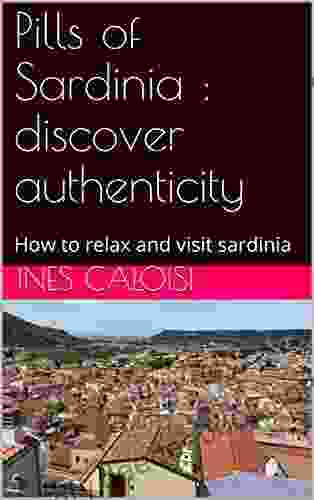
 Darnell MitchellPills of Sardinia: Discover Authenticity, Beauty, and Extraordinary Places
Darnell MitchellPills of Sardinia: Discover Authenticity, Beauty, and Extraordinary Places William GoldingFollow ·14.7k
William GoldingFollow ·14.7k Emanuel BellFollow ·17.4k
Emanuel BellFollow ·17.4k Gil TurnerFollow ·13k
Gil TurnerFollow ·13k Walt WhitmanFollow ·11.4k
Walt WhitmanFollow ·11.4k Israel BellFollow ·17.5k
Israel BellFollow ·17.5k Timothy WardFollow ·15.2k
Timothy WardFollow ·15.2k Chuck MitchellFollow ·7.5k
Chuck MitchellFollow ·7.5k Edwin BlairFollow ·18.2k
Edwin BlairFollow ·18.2k

 Ralph Ellison
Ralph EllisonHealth Care Global Viewpoints: Samantha Whiskey
Samantha Whiskey is a global health...
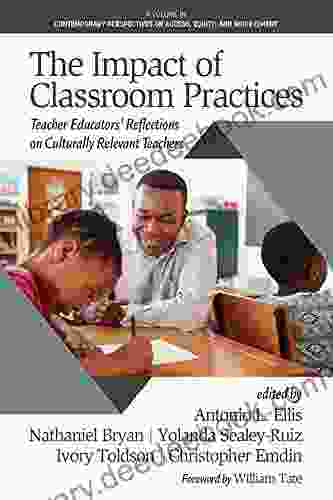
 Gabriel Garcia Marquez
Gabriel Garcia MarquezTeacher Educators' Reflections on Culturally Relevant...
In today's...
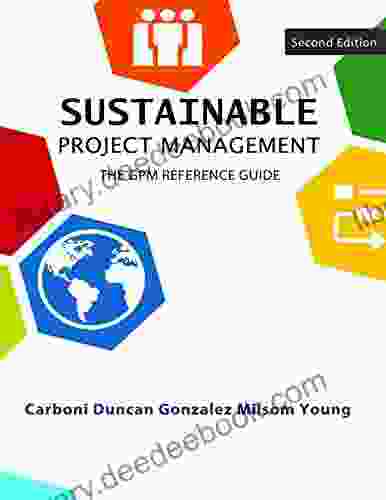
 Levi Powell
Levi PowellSustainable Project Management: The GPM Reference Guide...
In today's rapidly changing world,...
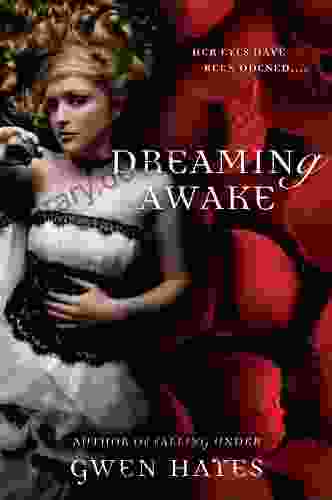
 Isaac Bell
Isaac BellThe Captivating World of "Dreaming Awake Falling Under"
A Journey Through...

 Clarence Brooks
Clarence BrooksGovernance Regulations Valuations Mergers And...
In today's complex and ever-changing...
5 out of 5
| Language | : | English |
| File size | : | 6141 KB |
| Text-to-Speech | : | Enabled |
| Screen Reader | : | Supported |
| Enhanced typesetting | : | Enabled |
| Word Wise | : | Enabled |
| Print length | : | 320 pages |



